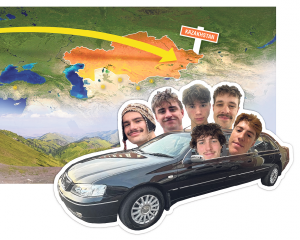Participants of the study are given soft-drink, syrup, freshly squeezed fruit juice and sweetened milk to drink each day, all in the name of science.
Dr Lisa Te Morenga and masters student Peter Crutchley are trying to identify the degree to which sugar intake increases the risk of developing diabetes or becoming obese.
They also want to know whether fructose consumption puts people more at risk than those who eat more glucose or sucrose.
To date, Dr Te Morenga and Mr Crutchley have enlisted about 40 participants, who were already consuming at least the equivalent of half a litre of soft-drink every day.
Some participants drank an average of two litres each day, while others consumed a litre of highly-sugared energy drink daily. The research monitored participants who maintained their normal sugar consumption, against those given the same volume of sugar-free soft drink, artificially sweetened milk or freshly squeezed fruit juice instead.
"We are interested in different types of sugar.
"Is fruit juice, which is high in fructose, as bad as soft-drink or not?" Dr Te Morengasaid.
There was surprisingly little scientific evidence supporting common theories about sugar as a cause of obesity and diabetes, she said. Dr Te Morenga and Mr Crutchley hope to recruit up to 80 participants in the eight-week study.












